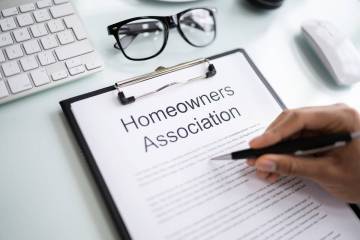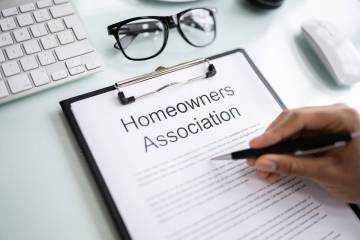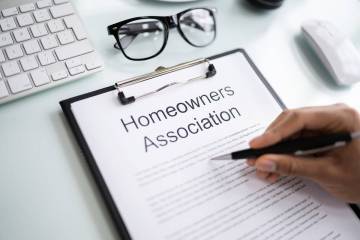HOA boards have important role to play in communities
Editor’s note: This is the third column in a three-part series of columns explaining the roles of homeowners, management companies and homeowners association boards.
In the last two columns, I have talked about the roles of the homeowner and the homeowners associations’ management companies.
Finally, we come to the role of the board of directors. By law, this role encompasses such legal terms as fiduciary obligations, duty of care, application of business-judgment rule, good faith (Nevada Revised Statute 116.3103). Board members sign a document for the state that they have read and understand the governing documents of the association and NRS 116 to the best of their ability. (NRS 116 31034 (15).
Board members have an obligation to disclose conflicts of interests. Most associations are organized as nonprofit corporations. The first obligation of the directors is actually to the corporation and not to the homeowners. Why? Because decisions must be based upon the laws and the governing documents of the association as to the management and decision-making of the boards. You, as a homeowner, may not like the fact that the board had to assess a fine against your account but that the board had an obligation to do so as managers of the corporation.
The law is very explicit as to the minimum requirements of the board (NRS 116.31083), which include:
■ Meeting at least once a quarter and not less than 100 days.
■ Reviewing financial information — monthly and yearly operating and reserve statements, reconciliation of all bank accounts.
■ Other statutory requirements include reviewing the reserve accounts to ensure that they are properly funded or that there is a funding plan in progress, preparing operating budgets, holding hearings and imposing reasonable fines and penalties, obtaining and reviewing bids, appointing directors to fill vacancies, adopting rules, consistent with their governing documents, forming committees, entering into contracts and responding to emergencies.
NRS 116.3102 and NRS 116.3103 lists functions or powers of the board of directors, such as instituting or defending litigation actions and regulating maintenance.
What makes the role of the board so difficult is balancing the various needs or demands of the community and its members. Financial concerns require increases in assessments or decreasing services or improving money management. Adopting new rules come with the changing times, such as working at home where many governing documents do not allow conducting business at home. But there is a difference between having a day care at your community versus a consultant who has no visitors and just works on the computer.
Discussions, disagreements and arguments occur as to what degree of enforcement can cause the balancing to shift from one direction to another.
Not everyone is a good communicator, not every board member understands the power of public relations, especially poor public relations that can eventually cause a change in directors. At a board meeting, it is not easy sitting in front of angry or upset homeowner(s) who then attack your personal integrity and character and still maintain “your cool.”
The ideal model is for homeowners, community managers and boards to work together as a team for the benefit of not one individual but for the community at large, recognizing your strengths and weaknesses as individuals and as a business organization who deals with members on a daily basis.
Barbara Holland is an author and educator on real estate management. Questions may be sent to holland744o@gmail.com.






















